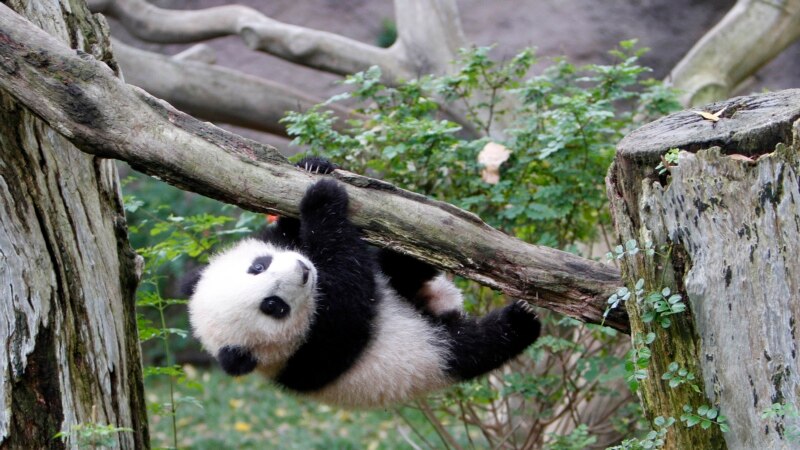
Will Pandas Return to US?
Panda lovers in the United States are hopeful for the return of the bears following a comment from Chinese President Xi Jinping last week.
Speaking at a dinner with American business leaders on Wednesday night, President Xi said, "We are ready to continue our cooperation with the United States on panda conservation and do our best to meet the wishes of the Californians so as to deepen the friendly ties between our two peoples.”
The Chinese president added, “I was told that many American people, especially children, were really reluctant to say goodbye to the pandas, and went to the zoo to see them off.”
Xi’s comment came just one week after the National Zoo in Washington, D.C. sent its three pandas – Mei Xiang, Tian Tian, and their cub, a baby panda, Xiao Qi Ji – back to China.
This is the second time this year that panda exchange agreements between the United States and China have ended.
The last panda at the zoo in Memphis, Tennessee went home earlier this year. The San Diego Zoo returned its pandas in 2019. Now, the only pandas in the U.S. are at the Atlanta Zoo, but that agreement will expire next year.
Many American observers of U.S.-China relations have thought that China was slowly taking its bears back in answer to unease with Western governments. But Xi’s comment at a dinner alongside the Asia-Pacific Economic Cooperation raised the possibility of continuing panda diplomacy.
Although Xi did not specifically provide information about returning pandas to the U.S., experts say his statement is a sure sign that the exchange program would be restarted.
Dennis Wilder is a senior researcher at Georgetown University’s Initiative for U.S.-China Dialogue on Global Issues. He said that Xi’s statement suggests that talks with American zoos could begin again. Wilder said, "If I'm at the National Zoo, I'm probably contacting my counterpart and saying, 'Can we move forward now?'"
Xi's comments about California could have been a result of his speaking in California, or because of California Governor Gavin Newsom’s recent trip to China. Either way, officials at the San Diego Zoo are hopeful.
Paul A. Baribault is the president of the San Diego Zoo Wildlife Alliance. He said, “We are excited to hear of President Xi's commitment in continuing the giant panda conservation efforts between our two countries, and his attention to the wish of Californians and the San Diego Zoo to see the return of giant pandas.”
History of Panda diplomacy
The panda diplomacy program first started in 1972 with the arrival of Ling-Ling and Hsing-Hsing at the National Zoo.
On November 8, the zoo returned its three pandas to China. Brandi Smith, the zoo director, said, “It is a moment with some heartbreak in it. But it is also a moment of joy because we are celebrating the success of the world's longest running conservation program for a single species .”
When Le Le, a panda at the Memphis Zoo died suddenly in February, there was a strong reaction in China accusing Americans of mistreating the bears. Since then, people in China have been generally supportive of bringing all the bears back to China.
Dennis Wilder said that the National Zoo would probably be chosen again because of its place in the U.S. capital and the 50 years of panda care experience.
“When it comes from the supreme leader in China, it moves,” Wilder said. “It will move fast now.”
I’m Faith Pirlo.
Ashraf Khalil reported this story for the Associated Press. Faith Pirlo adapted it for VOA Learning English.
Words in This Story
panda – n. a large animal with black-and-white fur that looks like a bear and lives in China
conservation – n. an organized effort that aims to protect animals, plants and natural resources
reluctant –adj. unwilling to do something
zoo – n . a place where many kinds of animals are kept so that people can see them
exchange – v. to give something to someone and receive something similar in return
counterpart – n. someone who has the same job or position as someone in a different place or organization
species – n. a group of animals or plants that are similar and can produce young animals or plants
We want to hear from you.
Our comment policy is here .
Share this article:
This article uses material from the VOA Learning English article, and is in public domain. Images and videos are available under their respective licenses.


